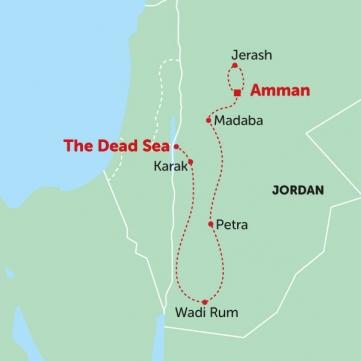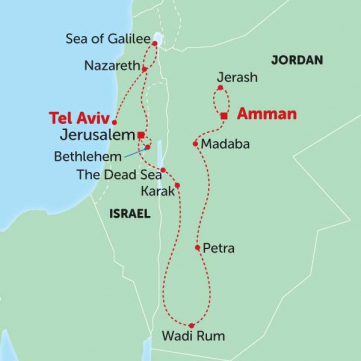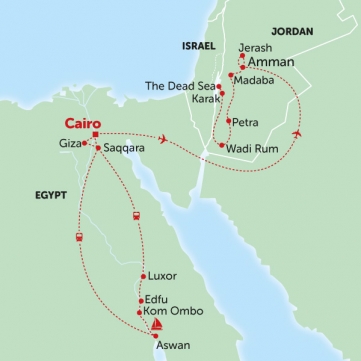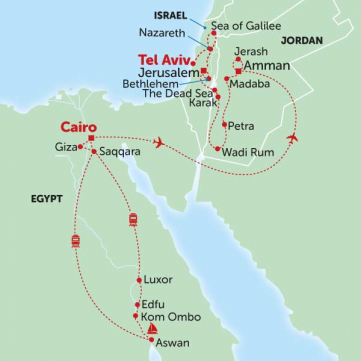Book NOW for $1 £1 €1 • Flexible Payments • No Change Fees • Private Departures Available
- Home >>
- Jordan Travel Advice
Jordan Travel Advice
Getting to Jordan
Jordan is a relatively small country, almost penned in on all sides and located in the Arabian desert between both the Levantine and Arabian regions. The country borders Israel, Syria, Iraq and Saudi Arabia and is met by the Red Sea in the South, leading to the Gulf of Aqaba.
- London to Amman is about a 5 hour flight
- Los Angeles to Amman takes around 16.5 hours
- Cape Town to Amman takes around 13.5 hours
- Sydney to Amman is about a 19 hour flight
- New York to Amman takes around 10.5 hours
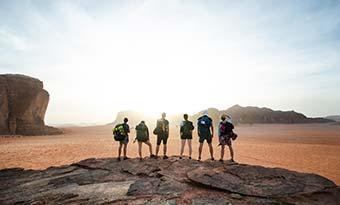
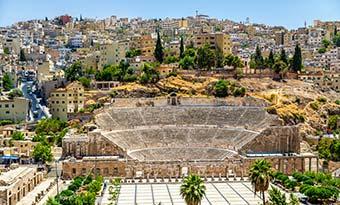
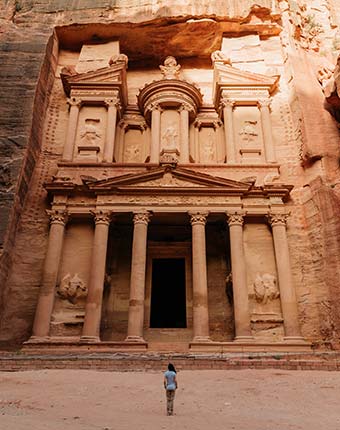
Main airport
in Jordan
Jordan has a total of only 5 airports. The international airport in Jordan is the Queen Alia International Airport (AMM) which is located about 20 miles south of Amman.
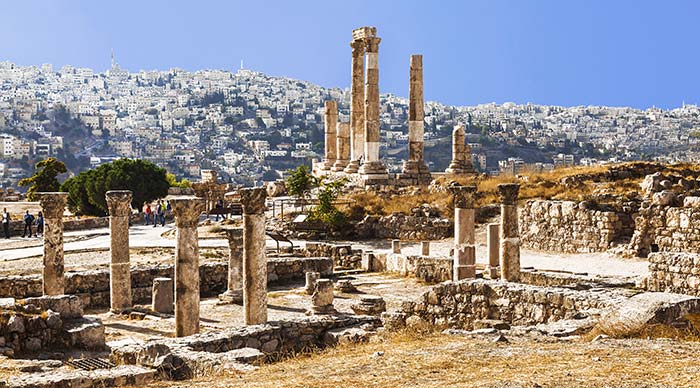
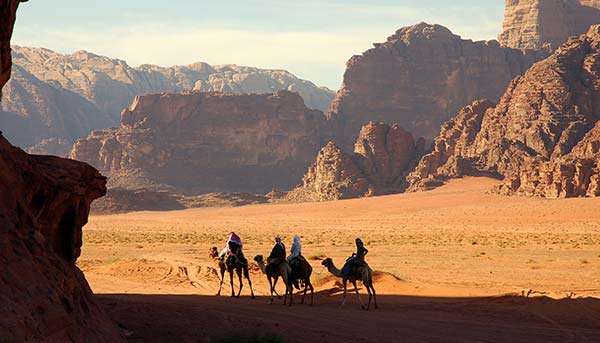
Geography & landscape
The majority of Jordan’s landscape consists of a barren, desert plateau. This extension of the Syrian desert covers nearly three-quarters of the country. The west of the country - the Great Rift Valley - consists of soaring mountains, green hills and deep lush valleys. The forested mountains of Ajloun are a welcome breath of fresh air away from the humidity of the cities and the dust of the desert.
Culture, religion
and etiquette
Jordan is officially an Islamic state with 92% of the population identifying as Sunnin Muslim and 1% Shia or Sufi Muslim. That said, Jordan welcomes all religions. 6% of the population are Christians and the rest of the 1% represent other religions. There are also around 20,000 - 30,000 citizens in north Jordan who identify as Druze.
Jordanian people are known for being hospitable and friendly towards each other and towards tourists. It’s not uncommon for a Jordanian to invite you into their home for some tea. Traditions are honoured and maintained in Jordan, especially in the rural areas. Houses are often divided between the males and females of the family, but Jordanian women receive considerable respect and freedom compared with other Middle-Eastern countries. Arranged marriages and provided dowries are however still relatively common.
Compared with its neighbours of Saudi Arabia and Iran where women need to cover up entirely, Jordan has quite relaxed views about what women can wear. The chances are, the temperature will be pretty warm when you’re in Jordan, but even so, please be respectful about what you decide to wear. Generally speaking, women wear long trousers or skirts and cover their chest and arms. Most local women will also have their hair covered with a headscarf.
Smoking is still a heavy part of Jordanian culture and you will likely find people smoking almost anywhere - inside cafes, taxis, restaurants, anywhere goes. People of the same sex generally greet each other with a hug or a kiss on the cheek, however any public affection between couples is severely frowned upon and will likely offend some people.
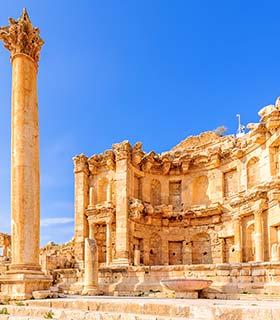
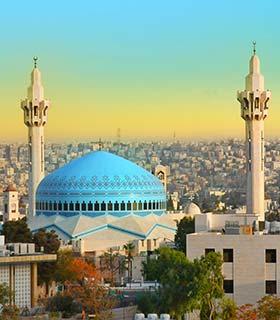
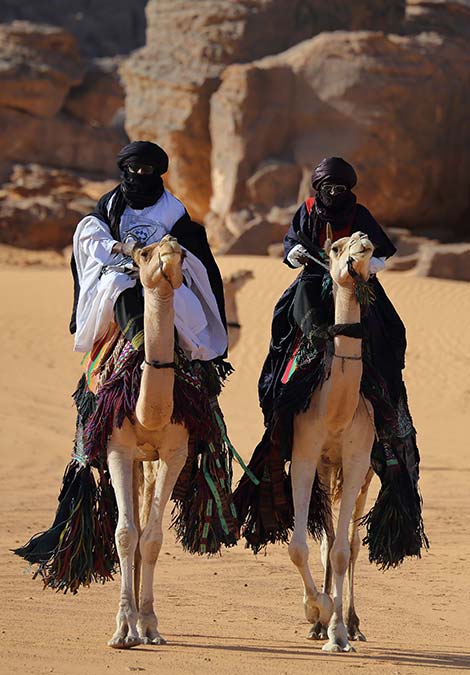
Top tip!
Many people eat their food with their hands in Jordan - it's seen as a sign that you are enjoying your meal if you do!
Photography
Jordan is one of the most photogenic places in the world and a great place to practice your photography skills. Jordanians are very accommodating and if you politely ask them to pose for a photo, chances are they will happily oblige. But make sure to ask their permission first. Also be aware that it is completely forbidden to take any photos of military or governmental buildings. If caught, you could easily be hit with a hefty fine or even face imprisonment.
Languages spoken in Jordan
Jordan is an Arabic country with it's official language being Arabic, which almost all Jordanians speak. There are three varieties of the Arabic language spoken here: urban, rural and Bedouin - which is primarily spoken by Jordanians living in the desert.
English is the primary foreign language spoken in Jordan and is taught as a compulsory subject during secondary school. You will find that most people will know some form of English. A small portion of the population also speak French.
Capital city of Jordan
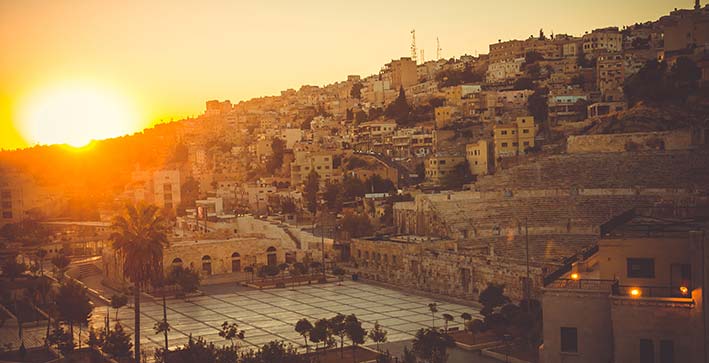
Amman
The capital city of Jordan is Amman which is around 32 km from the Queen Alia International Airport (AMM). The city of Amman has a population of just over 4 million - nearly half of the entire country. Amman is a modern city which is also the site of many Roman ruins including a temple and an amphitheatre. Amman is a city of hills and valleys and is a perfect place to get that first taste of Middle-Eastern life. Exploring the city you’ll find beautiful mosques, coffee houses, cafes bars and lots of shopping opportunities.
Visas for Jordan
You may need to obtain a visa before entering Jordan depending on your country of residence. Most nationalities will need a visa but this can usually be obtained on arrival. Visa rules can differ however, depending on where you enter the country. This is to be used as a starting point only, please check with the embassy which rules apply to you.
The following countries will not need a visa to enter Jordan if the stay is under 90 days: Egypt, Saudi Arabia, Kuwait, Palestine, Turkey, Qatar, United Arab Emirates, Oman, Bahrain, Lebanon.
The following countries can obtain a visa on arrival in Jordan: All European countries except Albania and Moldova, all North American countries except Belize and Cuba and all South American countries except Colombia.
The following countries will need to arrange a visa before entering Jordan: Afghanistan, Albania, Angola, Bangladesh, Belize, Benin, Botswana, Burkina Faso, Burundi, Cambodia, Cameroon, Chad, Colombia, Comoros, Congo, DR Congo, Côte d'Ivoire, Cuba, Djibouti, Equatorial Guinea, Eritrea, Ethiopia, Gabon, Gambia, Guinea-Bissau, Guinea, Iran, Iraq, Kenya, Laos, Liberia, Libya, Madagascar, Mali, Mauritania, Moldova, Mongolia, Mozambique, Myanmar, Namibia, Nepal, Nigeria, Pakistan, Papua New Guinea, Philippines, Senegal, Sierra Leone, Somalia, Sudan, Syria, Tanzania, Togo, Uganda, Vietnam, Yemen, Zambia.
Vaccinations & travel health
The CDC and the WHO advise for the following routine vaccinations to be up to date when visiting Jordan: Measles, Mumps & Rubella (MMR), Tetanus, Diphtheria & Pertussis (TDAP), Chickenpox, Shingles, Pneumonia, Influenza, Meningitis.
They also recommend the following vaccinations for travel to Jordan: Hepatitis A, Hepatitis B, Typhoid, Yellow Fever, Rabies, Anthrax and Polio.
Is it safe to drink tap water in Jordan?
On the whole, the tap water in Jordan is safe to drink. However the safest option is to drink bottled water with an unopened seal wherever you go. In most of the country, the water has been classified as safe although it can taste very salty.
Electricity and plugs in Jordan
The plugs and sockets in Jordan are type C, D, F, G and J. The standard voltage is 230V with a frequency of 50 Hz.
Emergency calls
It is always a good idea to have a few important numbers saved on your phone in case of emergencies. The most important ones in Jordan are:
- 962 is Jordan’s country code
- 00 is the international access code
- 911 is the number for the emergency services (fire, ambulance and police departments).
Travelling as a single woman in Jordan
Travelling Jordan as a solo female is generally very safe. As long as you respect the local customs, dress appropriately and be aware of the cultural differences, you should be fine. That doesn’t mean you won’t come across difficult times. As a western woman travelling unaccompanied, you will undoubtedly receive a little unwanted attention. As you move further off the beaten track, you will often find that most restaurants and public transport will have separate areas for men and women, although, that doesn’t stop the staring. Here’s a few tips for keeping safe as a solo female traveller:
- Dress appropriately. If you wear revealing clothing, short shorts, short skirts, or are showing your shoulders or stomach, it will draw attention. Jordanian women cover their arms, legs, shoulders and hair.
- Buy or bring a phone which works internationally and install a local SIM card. Store some emergency contact numbers and apps on there straight away and always keep a battery pack with you in case of emergencies.
- Make sure at least one person knows where you are and when you are supposed to call next. Give them the names of the hotels you are staying so that if you fail to call them, they can check on you.
- If a situation is making you uncomfortable, let them know. If it persists, calmly move on.
Wifi and internet access in Jordan
Wifi and internet access in Jordan is generally pretty easy to come by. Most of the hotels have wifi, as do many cafes, restaurants and shops. In every city you will also find multiple internet cafes if you can’t connect to the wifi.
Time zone
Amman, Jordan
Jordan (AST) is 2 hours ahead of London (GMT), 10 hours ahead of Los Angeles (PDT) and 7 hours ahead of New York. Jordan runs on Eastern European Summer Time and switches to daylight savings time. To calculate the time difference from your current location, visit timeanddate.com.
Getting around
Bus
The most popular way to travel between each city is by bus. These can be standard buses, mini buses or even coaches. The buses usually don’t follow a schedule as such, but depart when full, so make sure you don’t catch a bus when you're short on time! As Jordan is such a small country, the longest bus journey you can ever take (Amman to Aqaba) will be 4 hours at the most.
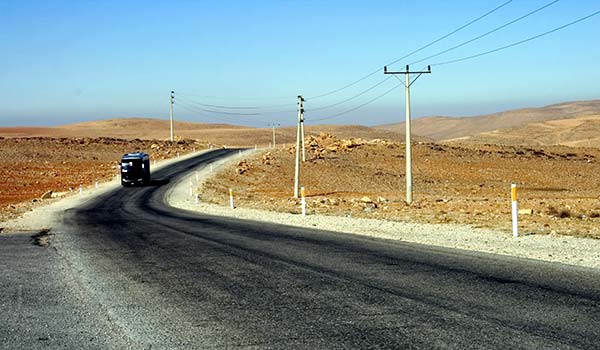
Car Hire
Hiring a car is often one of the best ways to get around Jordan. The surfaces of the roads are generally in good condition, however are usually without lanes, There are no particular rules to overtaking, only that when doing so you should simultaneously blast the horn. Renting a car is the most flexible and time efficient way to travel but to get a good deal you will need to book this before you arrive in Jordan.
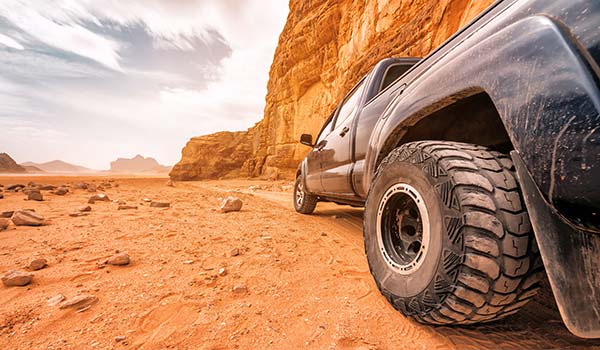
Taxi
Taxis in Jordan are yellow and green and will usually take you anywhere for a price. It is by far the best way to travel in and around cities, and is near essential for trips around Amman. Taxis are generally good value for short distances but the value significantly decreases the further you travel. Taxis are on the meter in Amman but you will usually have to negotiate the fare elsewhere.
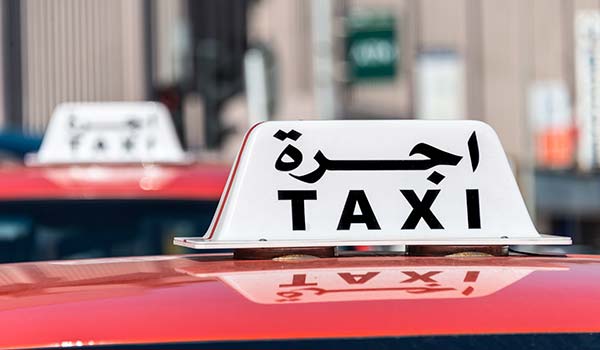
Aeroplane
There is only one domestic flight path in Jordan which is from Amman to Aqaba. The flight runs a couple of times a day and only takes around 30 minutes. At a cost of only JD50, it’s cost effective and the quickest and easiest way to travel between the two cities.
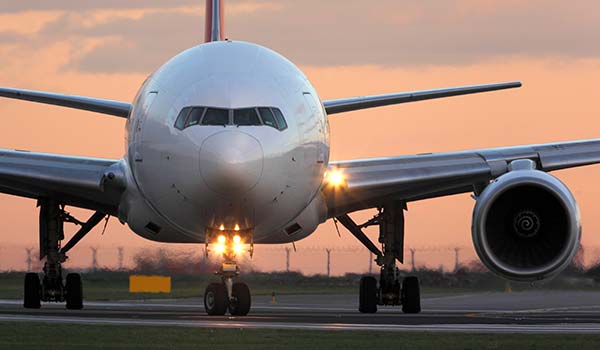
History of Jordan
The history of Jordan is fascinating and full of mysterious, ancient civilisations. Evidence of humans has been found which dates back at least 90,000 years. But the written history of Jordan begins in Biblical times, as mentioned in the old testament. The country was first settled by the Amorites in 2000 BC, followed by the Hittites, Egyptians, Israelites, Assyrians, Babylonians, Persians, Greeks and Romans.
The famous hidden city of Petra was built by the Nabataean civilisation, which we still know very little about. Petra was a major stop on the famous Silk Road and became a central point of trade in the Middle East. The Persian Empire took over later, and the Roman Empire conquered after that.
In 1516, Jordan joined the Ottoman Empire until the empire fell in 1922 after its defeat in WW1. The League of Nations then placed Britain in power and assigned Hashemite lord Abdullah I to govern. In 1946 Jordan gained independence. The newly independent country joined the Arab Israeli war in 1948, opposing the partition of Palestine and after Israel won, the first set of Palestinian refugees fled to Jordan.
In 1950, King Abdullah was assassinated by the Palestinians and the throne was succeeded first by his son, then his grandson who promoted liberalism in the country. Jordan now had a constitution which guaranteed freedom of speech. In 1967, after the Six-Day War, the next flood of refugees came to Jordan. The government and the Palastinians collided in a civil war, now remembered as Black September. The Palastinian guerrillas were eventually expelled. In 1989, Jordan held its first election and by 1994 they had signed a peace treaty with Israel. King Hussain ruled until his death in 1999 when his son Crown Prince Abdullah took his place.
Featured Tours


Website & Online Bookings by Metafour



